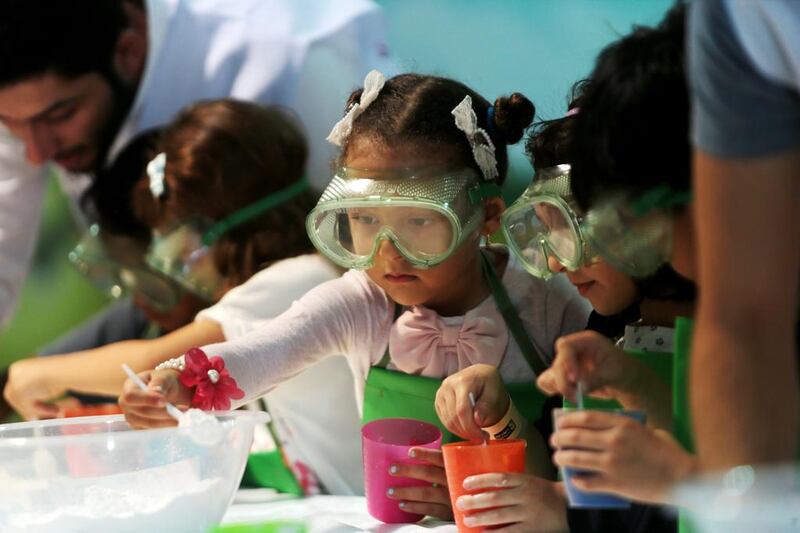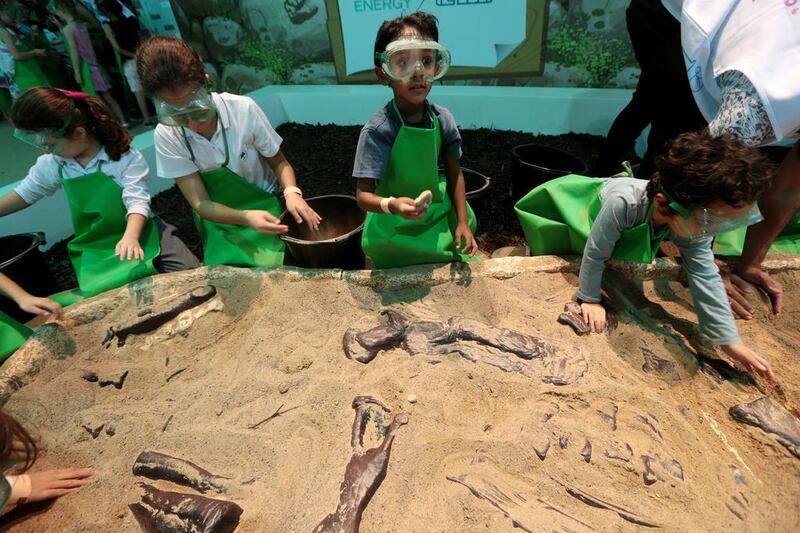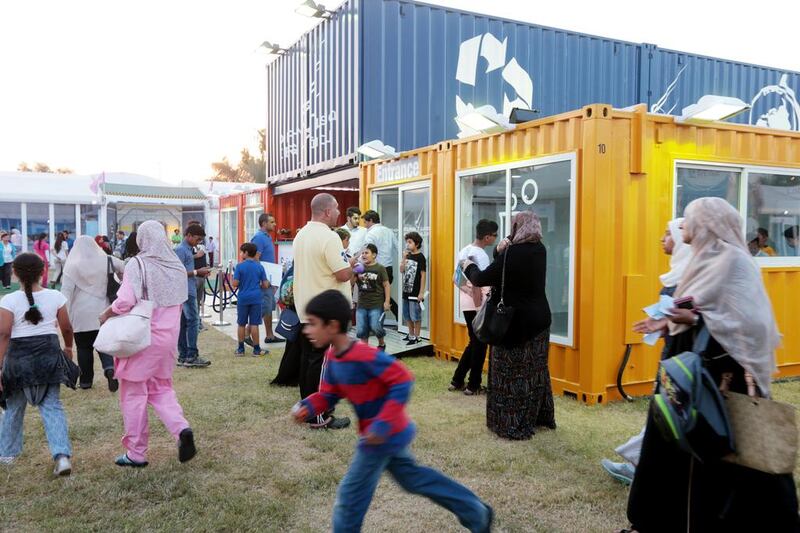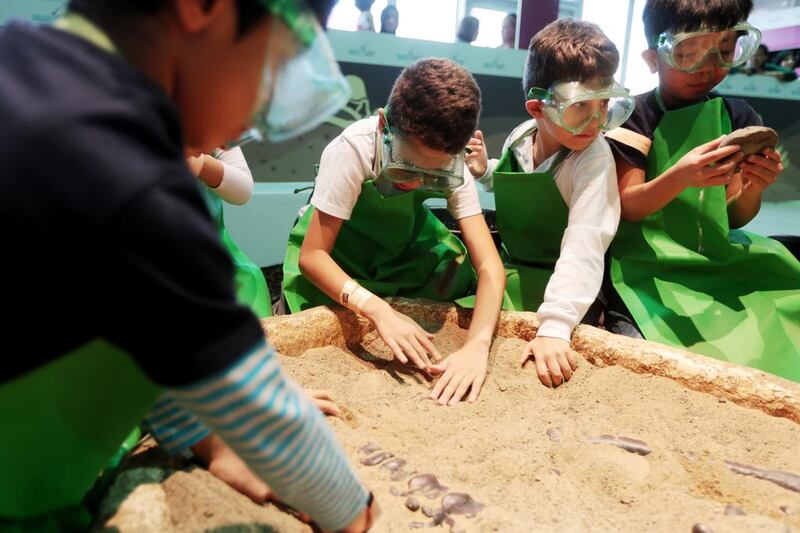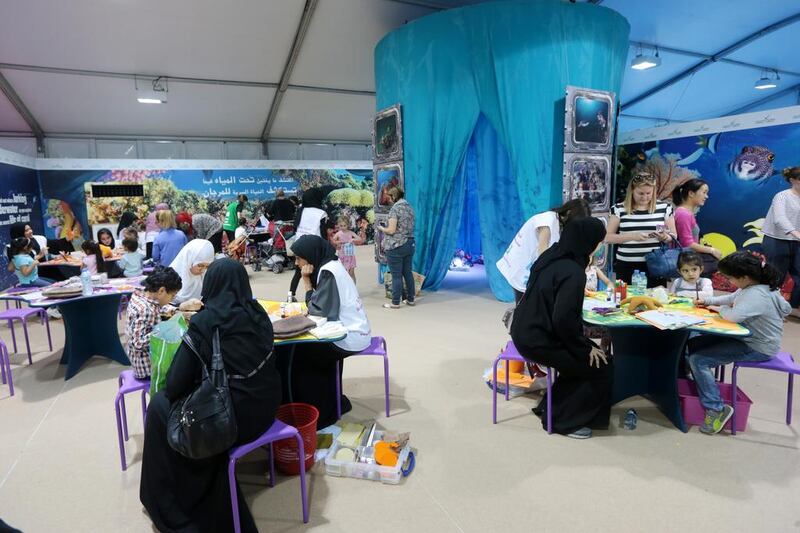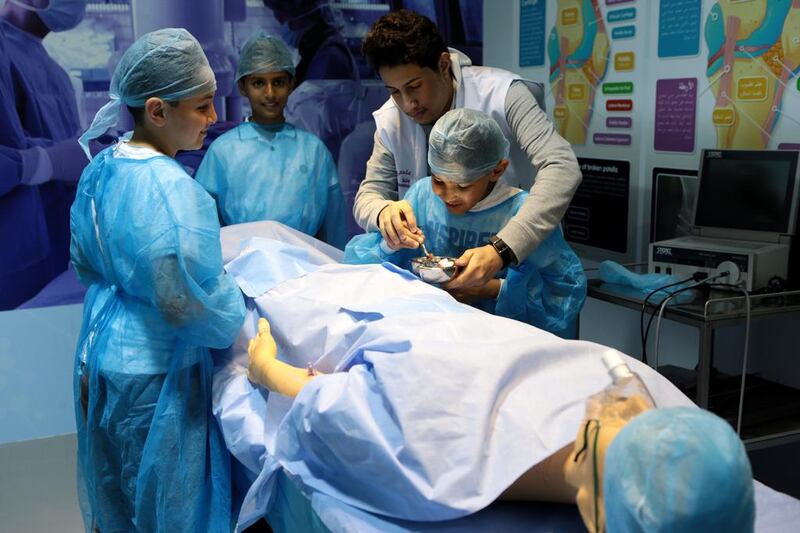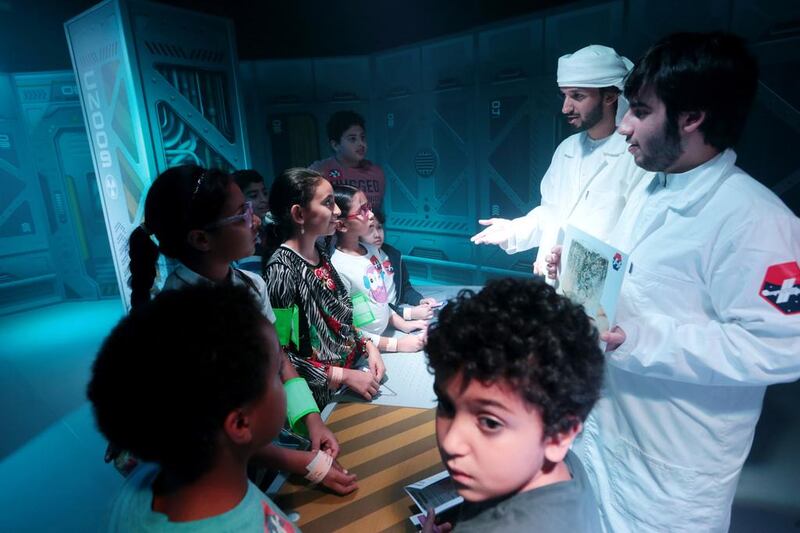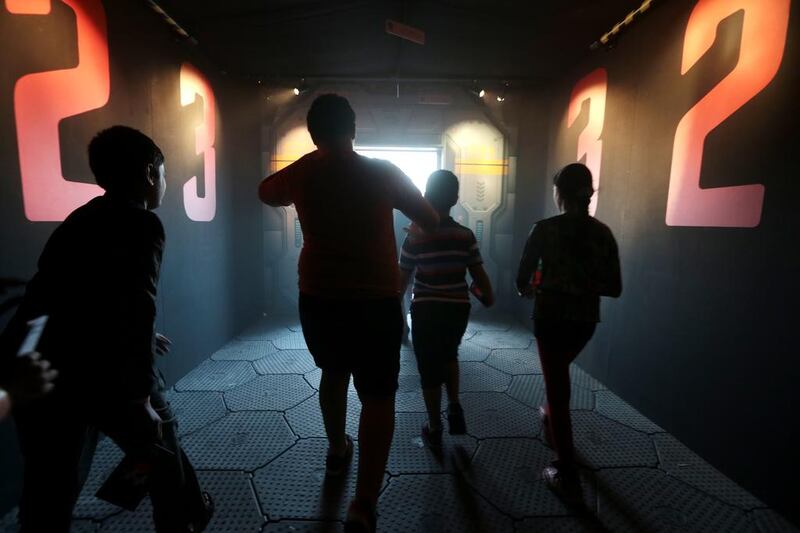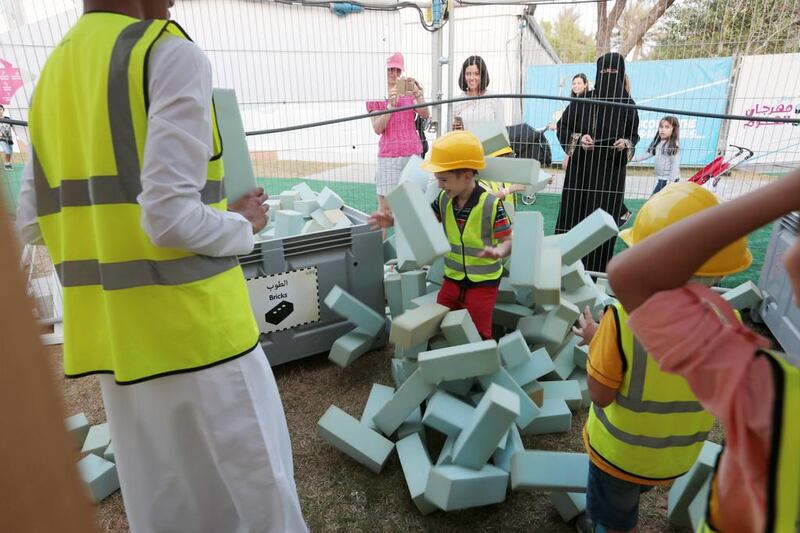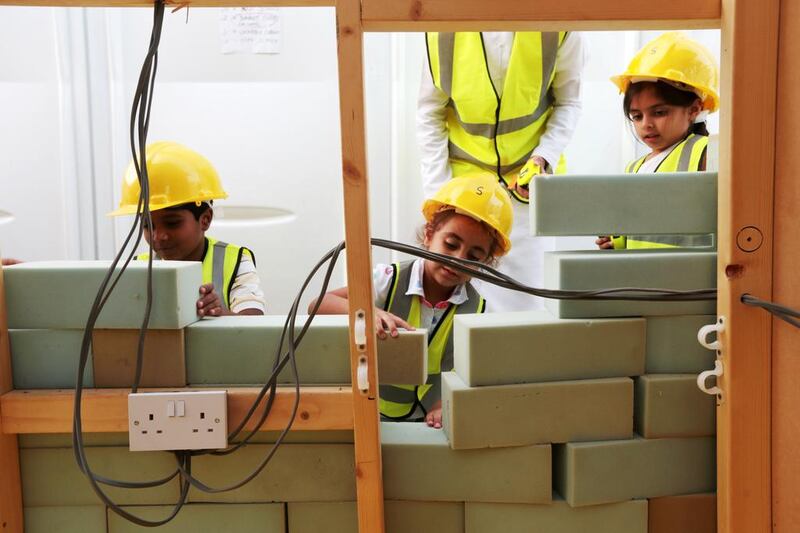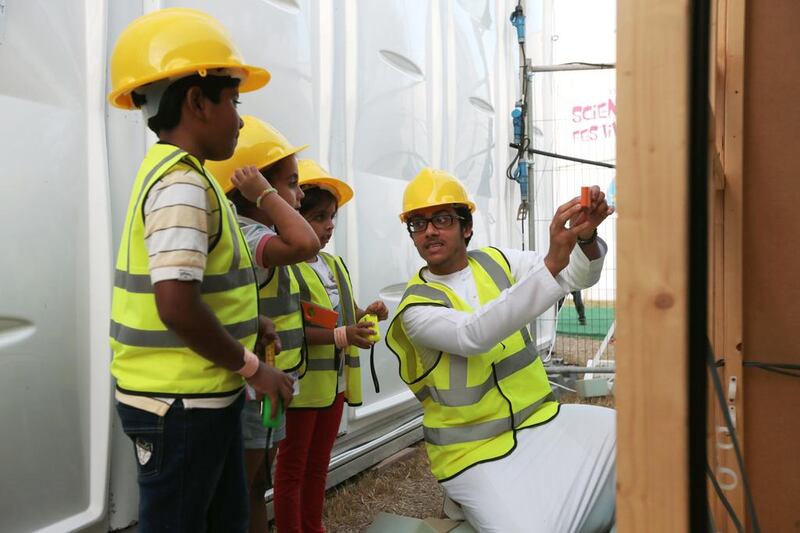ABU DHABI // Controlling a robot on the planet Mars, performing brain surgery on an injured patient and detecting radiation in the air were three ways visitors kicked off this year’s Abu Dhabi Science Festival.
In its new location at Mushrif Central Park, the festival featured more than 50 workshops designed to stimulate and encourage young minds in science, technology engineering and maths.
With up to 40 per cent of the exhibitions being designed, commissioned or sponsored by Emirati individuals, companies or organisations this year, the event had more of a local flavour than those in the past.
Mohammed Almheiri, 24, co-founder of Zero Ohm, a Dubai-based company that sells electronic components, said exhibits such as his on radiation were important for the country to develop a knowledge-based economy.
“These exhibits encourage children from a very young age to become curious and interested in science.”
“It’s an adventure – something they can see, they can explore and they can experiment,” said the Emirati.
Mr Almheiri, who has a master’s degree in nuclear engineering, said he wanted children to learn about radiation by seeing it first-hand.
“With the UAE investing heavily in nuclear energy, we will need a local workforce,” he said.
“This is one way to attract them to the field, in an exciting and interesting way.”
One of the more popular exhibitions gave students a chance to operate out of a space station orbiting Mars.
The station’s smoky atmosphere, accentuated by blue lighting, provided lessons on astrology, astrobiology and robotic technology.
Visitors learnt how to look for evidence of water and life on the Red Planet, as well as operate a Lego Mars Rover on the Martian terrain to collect samples they would work on.
Carrie English, of the Edinburgh International Science Festival, who has been involved in all five festivals, said the existence of the home-grown UAE space programme, which sponsored the space exhibition, excited children even more.
“They will be able to watch as the UAE Space Agency launches a probe to Mars in 2020 and engage with the information it sends back,” she said.
Manning the event’s space station was Abdullah Al Hebesi, 19, one of the 700 university students who helped to organise the event.
“I see the smiles on the kids’ faces and know it will motivate them to have more interest in the subject of space, something we are not exposed to a lot in school,” said the Petroleum Institute mechanical engineering student.
Mohammed Al Saadi, 32, brought his children, aged 2 and 5, and said that it was important to expose them to science early on.
“At this age they can absorb so much knowledge, so I think it is important to engage them now,” said the Emirati.
Mr Al Saadi said that despite the long queues to obtain tickets, the festival was well organised. “It’s amazing, but I wish more fathers would come with their families,” he said.
Noticing that most of the children were accompanied by their mothers and maids, he said that fathers were missing out on an important part of their children’s’ upbringing.
“Fathers should play the role models to children and encourage their engagement in the sciences,” he said.
“And it is not only the children who will learn. Parents will be surprised about how much they will discover.”
The festival runs until November 22. See www.abudhabisciencefestival.ae.
tsubaihi@thenational.ae
